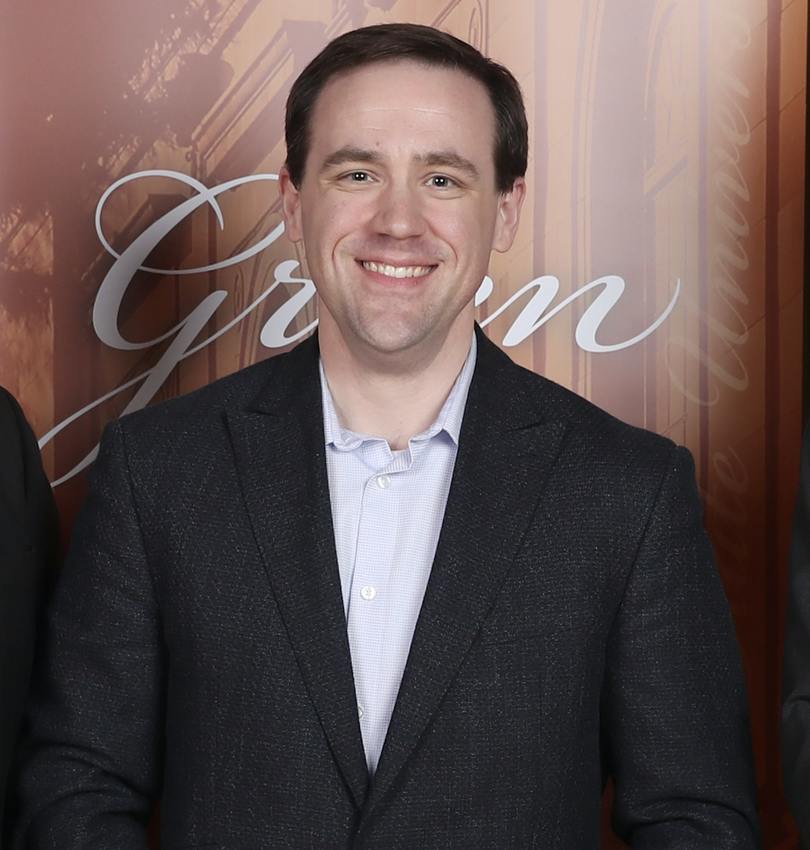Vallier Wins 2023 Sanders Philosophy of Religion Prize
Kevin Vallier, associate professor of philosophy at Bowling Green State University, is the winner of the 2023 Philosophy of Religion Prize from the Marc Sanders Foundation.

The prize is a biennial essay competition open to scholars who are within fifteen years of receiving a Ph.D. or students who are currently enrolled in a graduate program.
Professor Vallier won the prize for his essay, “Trinitarian Contractarianism”, which the prize announcement describes as “a bold attempt to lay new foundations for a distinctively religious ethics.”
The prize includes $5000 and publication of the essay in Oxford Studies in Philosophy of Religion.
Runners-up for the prize were Austen McDougal (Stanford) for his “Loving Your Enemy” and Martin Pickup (Birmingham) for his “Where is God? Divine Presence and Location”.
You can learn more about the prize and see a list of previous winners here.



Terrific. So happy for Kevin. Nice that it would be announced during the Holy Week of Eastern Orthodoxy, the faith that Kevin practices.
This series of volumes is not on “philosophy of religion” as such, for non-Western religious worldviews are excluded from the ten volumes in the series (consistent with the philosophical background and orientation of the editors), the material primarily generated by ideas, topics, and concepts common to philosophical and theological examination of Abrahamic theistic traditions, and especially Christianity. The series title should therefore be amended to make this explicit. In other words, in this case we need a Confucian-like “rectification of names.”
The series states that it offers a “regular snapshot of state-of-the-art work in this longstanding area of philosophy…” Moreover, the stated policy is that “it will publish exemplary papers in any area of philosophy of religion.”
In a word, the series doesn’t claim to give a comprehensive overview of anything and everything currently done in the philosophy of religion (which would be a stupid aim given the proliferation of scholarship). And its stated policy is *not* exclusionary. We can speculate on why it is that non-Abrahamic traditions aren’t represented in the series—it could be editorial, it could be self-selection by authors, or some combination… etc. But to claim it excludes non-Abrahamic traditions without qualification is, to my mind, silly and verges on defamatory.
— Someone who is not affiliated with the Oxford Series in Philosophy of Religion
Isn’t the “hysterical, hyperbolic rhetoric” is coming primarily from you, Patrick? E.g.: “it is a simple, flagrant, and inexcusable fact, that the series has not, in 10 volumes, published any ‘exemplary papers in any area of philosophy of religion,’ save the theistic traditions I cited, the putative policy be damned (there be no need, therefore, to qualify that statement unless by that means one is devoted to defending the indefensible).” … or the initial claim that non-Abrahamic traditions have been “excluded” when what we know is simply that they have not been published there. (I say this as someone who has published in OSPR but who also agrees that in an ideal world, they would have published more from non-theistic traditions. Whether that being an ideal entails that what OSPR has (not) published during its existence is “inexcusable” is surely debatable… not all failures to fulfill an ideal are inexcusable, nor are they always evidence of failure of some duty, whether professional, moral, or whatever.)
OSPR Editor here.
We would love to publish papers that engage with or originate from a wider variety of traditions. Nearly all the submissions to this year’s prize were related to Abrahamic traditions. But my impression is that there is starting to be a larger group of talented young scholars in Anglophone philosophy from a wider variety of traditions. Younger scholars from all traditions, we hope you submit papers for the prize in the future!
And just to be explicit about our editorial practices: we don’t consider religious tradition to be a factor in assessing a paper.
My comment had nothing whatsoever to do with the prize, who won it, and why. It was about the series itself and the manner in which it is titled. And talented scholars (young and old) in Anglophone philosophy (by this I mean simply conversant in and thus able to publish in English) who are acquainted with far more than Christianity have have been around for quite a long time, and I was fortunate enough to have had a few of them for teachers back in the early to mid-1980s: Ninian Smart, Raimundo Panikkar, Gerald James Larson, and Herbert Fingarette (all of whom are no longer with us), for example, and they in turn, informed us of others. Consider, today, for example; Karl Potter, Roger Ames, Chakravarti Ram-Prasad, Stephen C. Angle, Kisor Kumar Chakrabarti, matthew R. Dasti, Jonardon Ganeri, Jonathan C. Gold, Ronnie L. Littlejohn, Stephen H. Phillips, John Taber, Chris Fraser, Ethan Mills, Pradeep P. Gokhale Dan Arnold, Miri Albahari, Malcolm Keating, Guy Newland, Graham Priest, Matthew Kapstein, Paul J. Griffiths, Bo Mou, Bryan W. Van Norden, David L. Hall, Paul R. Goldin, Tom J.F. Tillemans, Owen Flanagan, Oliver Leaman, Sara L. McClintock, Amy Olberding, Mark Siderits, David B. Wong, etc., etc. (This is just a sample, and I listed those that came quickest to mind so apologies to anyone out there there is equally deserving of mention).
Apologies for typos and grammatical errors as other obligations are pressing so I typed too quickly.
There might be a missing bit of knowledge here, which is that most of the papers we publish are submissions to the prize (winner + others of very high quality). Many (most? all?) of the Oxford Studies in X series are connected with the Sanders Prize in X. Submitting to the prize is the main way for *any* work to get published. Thus, the main way for us to try to broaden what is published is to encourage people to submit to this prize.
We occasionally don’t fill the whole issue with prize submissions, and then we publish additional content, determined in a variety of ways. How we will do this going forward is currently a matter of discussion among us, with an eye to making sure we showcase the wide variety of work in philosophy of religion and don’t unfairly exclude anyone (along many different dimensions).
[I’m not sure this was a serious suggestion, but in case you are proposing that we actually change the title: I wouldn’t want to change the title of the series, because I don’t want to make only work in Abrahamic traditions eligible to be published. In any case, I don’t think it’s up to us to change the scope or title of the prize.]
I unfortunately don’t have time to engage further, but thank you for your comments and for expressing your view of the series. I am familiar and admire the work of many of those on your list; thanks for writing it out.
Just realized that my remark about talented younger scholars might be read to imply that I don’t think highly of more established scholars (perhaps why you responded with the list?). Nothing could be further from the truth. I focus on younger scholars because only they are eligible for the prize.
In any case, I don’t want this discussion to distract from the main point of the original post. Congratulations, Kevin, on a terrific paper!